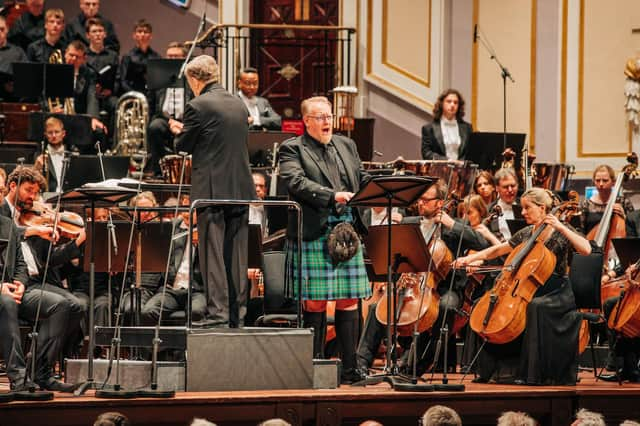Edinburgh International Festival review: The Closing Concert – Royal Scottish National Orchestra with guests


The Closing Concert ***
Royal Scottish National Orchestra with guests
Usher Hall, Edinburgh
In truth, programming Elgar’s The Dream of Gerontius should provide a transcendental end to an important festival. So, with a packed hall, terrific singers, a massed choir and orchestra and a fine conductor, with text primed to rouse any flagging Christian, we encountered Gerontius. Cardinal Newman´s poem long inspired Elgar´s obsession with the words and a resulting interminable gestation in setting the work. Gerontius, devout and fearful and facing death, confronts the ferment of his soul and embraces the fierce pronouncements of a priest. An angel, both soothing and alarming, escorts him to meet his God. Ultimately, the music helps us to assume that he finds peace in the afterlife.
Elgar, however, sets up a conundrum. He demands a heroic voice and super-human stamina from his tenor title role, while Newman´s Gerontius is fragile, deeply human - perhaps we might meet him of a Sunday in the next pew. He then surrounds his anti-hero with stage-stealing partners, a priest with hugely dramatic music and an angel whose utterances assume the embodiment of womanly comfort.
Advertisement
Hide AdThe performance was conducted beautifully by Sir Andrew Davis who cares so deeply and fastidiously about this repertoire. The RSNO was splendid. Andrew Staples in the title role sang with self-effacing sensitivity, yearning and a sense of wonder. Text, tiresome to Protestant ears in its earnest pomposity, was delivered impeccably. Baritone Iain Paterson, possibly as a splendid statement – Edinburgh Festival, profoundly English music – wore a kilt and sang with astounding rich authority. Karen Cargill´s angel was a powerhouse of soaring Alleluias and dark warnings. The chorus, disciplined and eloquent, were angels in their own right.
Ultimately though, the work showed its flaws, long-winded and orchestrally earnest, overwhelmed by the unceasing flow of unctuous words. Expressions of faith, these doubt-filled days, need to be a great deal more compelling.